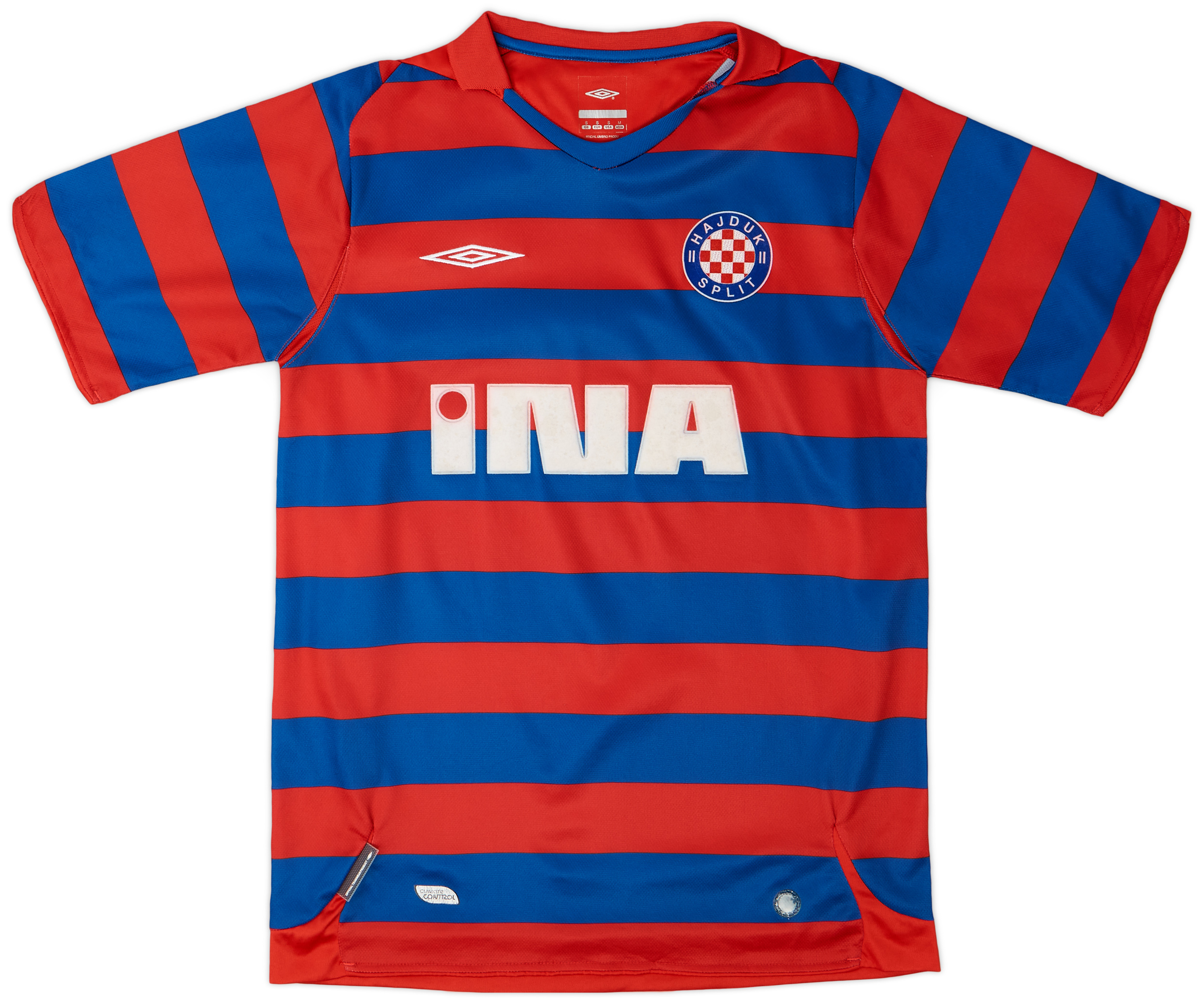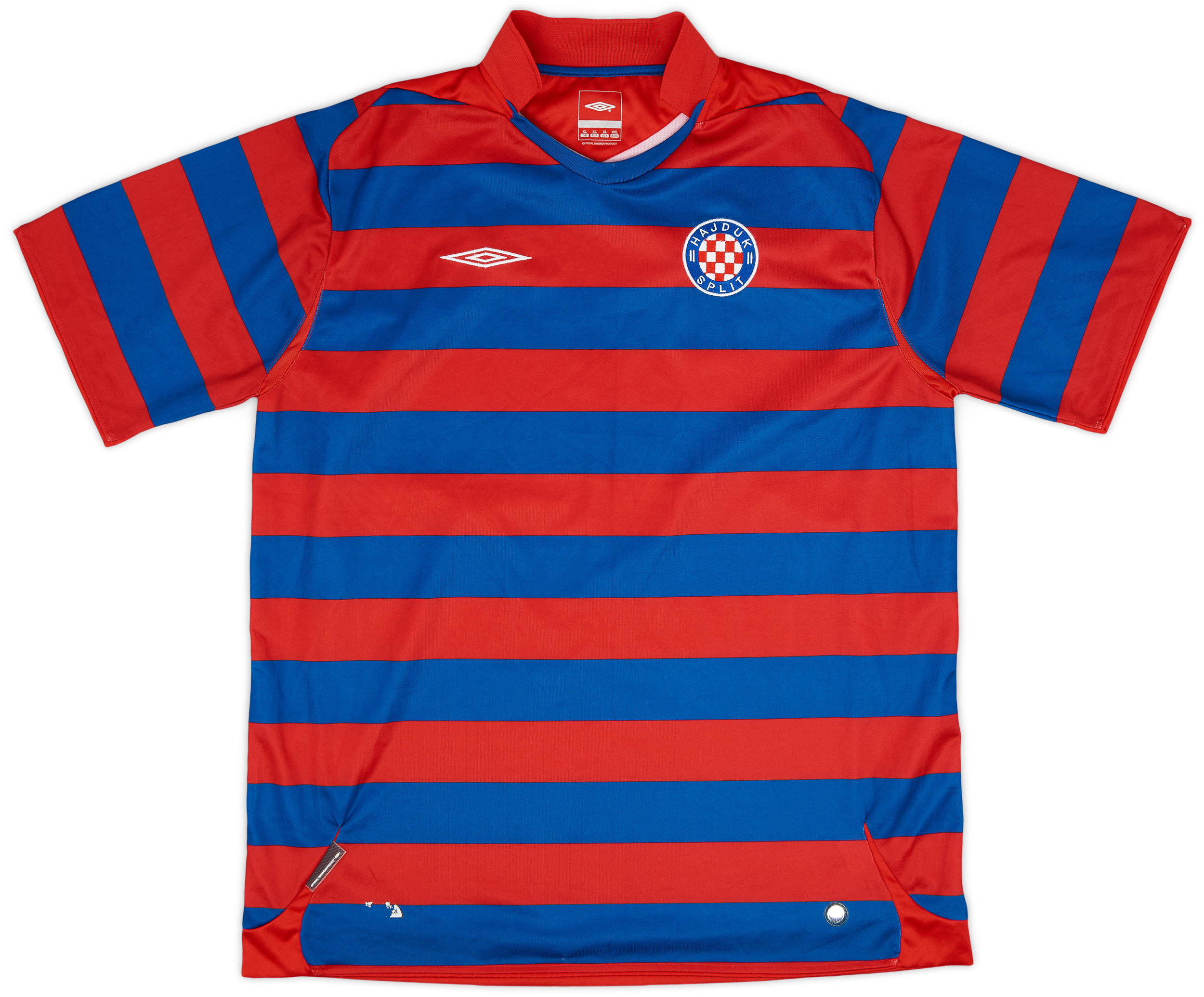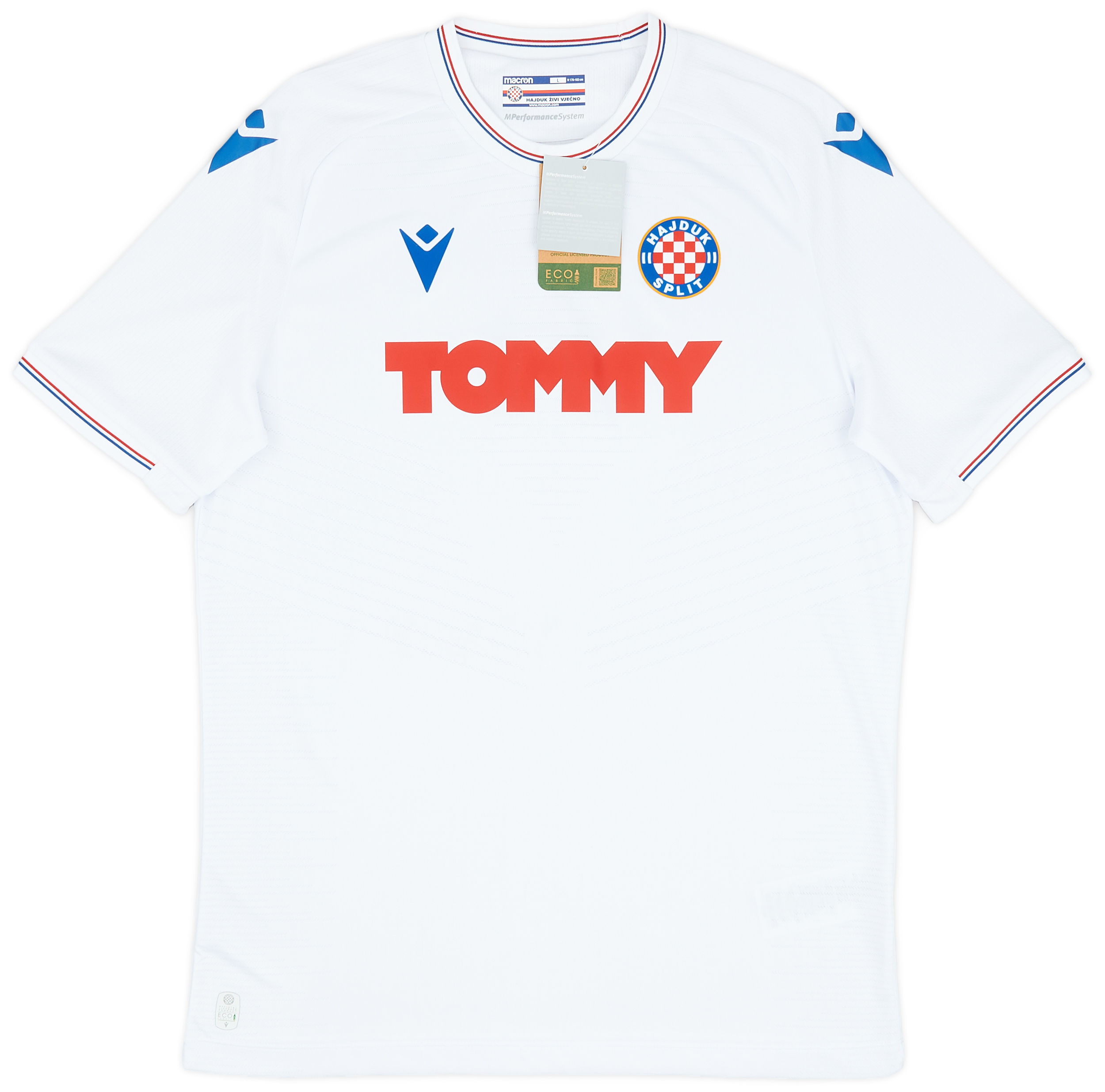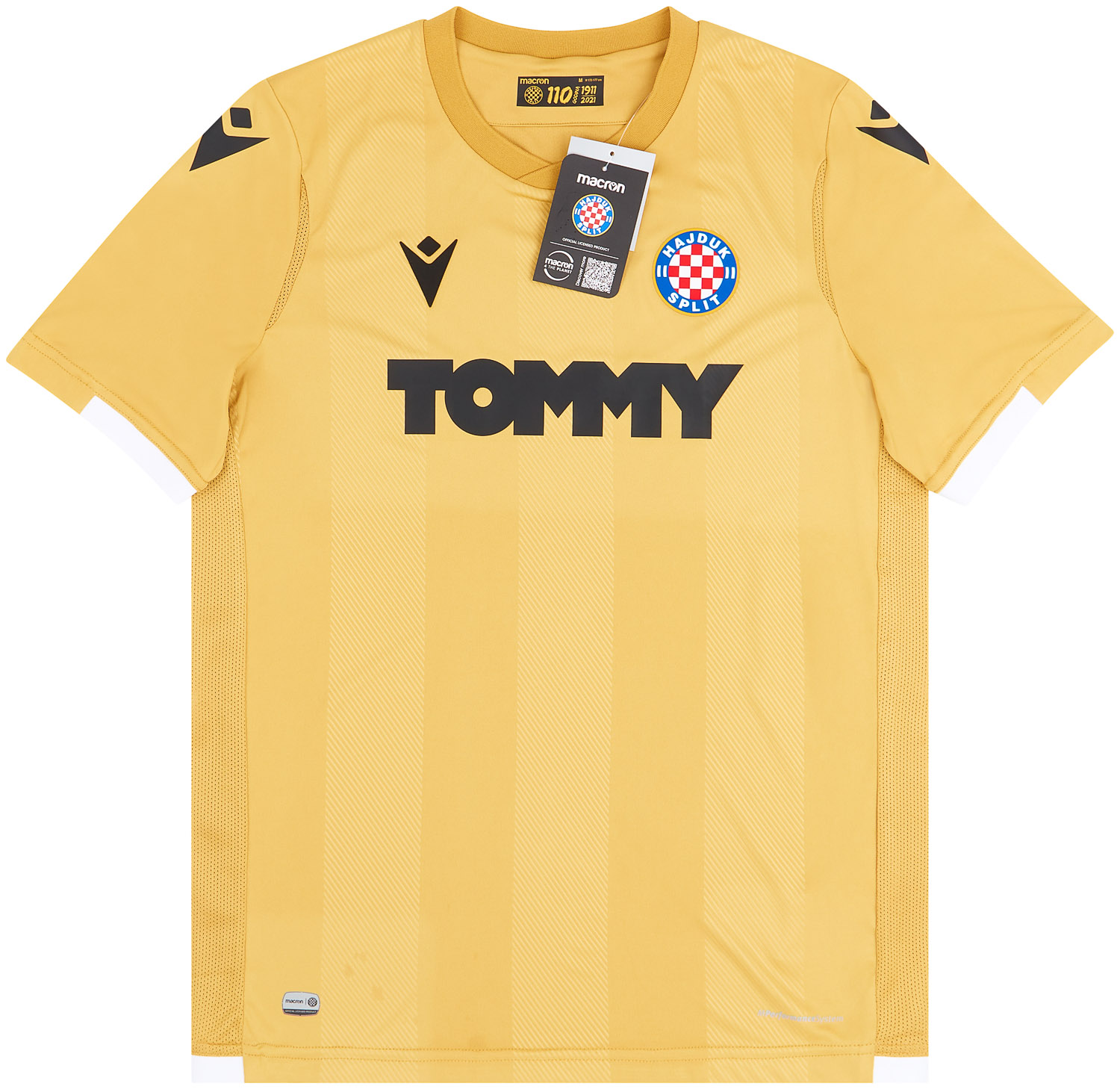Hajduk Split
Introduction Hajduk Split is not just a football club; it is an emblem of Croatian pride and identity. Founded in 1911 in Split, the club has woven itself into the cultural fabric of the region, creating a legacy that stretches beyond the pitch. Known for its passionate fan base, rich tradition, and a commitment to […]
2010-12 Hajduk Split Centenary Third L/S Shirt - 10/10 - (XL)
129.99£ - ca: €153
2008-11 Hajduk Split Away Shirt - 8/10 - (M)
94.99£ - ca: €112
2006-10 Hajduk Split Home Shirt - 8/10 - (L)
94.99£ - ca: €112
2008-11 Hajduk Split Away Shirt - 8/10 - (S)
94.99£ - ca: €112
2008-11 Hajduk Split Away Shirt - 8/10 - (XL)
94.99£ - ca: €112
2022-24 Hajduk Split Home Shirt
82.99£ - ca: €98
2006-10 Hajduk Split Home Shirt - 7/10 - (M)
82.99£ - ca: €98
2022-24 Hajduk Split Away Shirt
70.99£ - ca: €84
2021-23 Hajduk Split Third Shirt
64.99£ - ca: €77
2021-23 Hajduk Split Third Shirt
58.99£ - ca: €70
2006-10 Hajduk Split Home Shirt - 5/10 - (L)
53.99£ - ca: €64
Introduction
Hajduk Split is not just a football club; it is an emblem of Croatian pride and identity. Founded in 1911 in Split, the club has woven itself into the cultural fabric of the region, creating a legacy that stretches beyond the pitch. Known for its passionate fan base, rich tradition, and a commitment to producing homegrown talent, Hajduk Split stands as one of the most recognized and revered teams in Croatian football history. The team’s distinctive white and blue colors symbolize its deep-rooted connection to the Adriatic city and its heritage.
Club History
The inception of Hajduk Split is steeped in history, starting with its foundation on February 13, 1911, by a group of Croatian students who returned from Prague. Initially named “Hajduk,” the club became a pioneering force in Croatian football. The early years were marked by significant local competitions that laid the groundwork for what would become a prominent footballing institution. The club quickly gained recognition, capturing its first championship in 1921. Throughout the tumultuous years of the 20th century, marked by wars and political upheaval, Hajduk maintained its identity and passion for the game, becoming a symbol of resistance and resilience.
Achievements
Hajduk Split boasts an impressive list of achievements within both domestic and international competitions. In the field of domestic football, the club has claimed the Croatian First League title a remarkable 25 times, making it one of the most successful clubs in the league’s history. Their dominance is evident from the pre-World War II era, with significant championships won during the 1920s and 1930s, and continuing with successes post-independence from Yugoslavia in the 1990s. Additionally, Hajduk has lifted the Croatian Cup 18 times, further solidifying its stature in domestic competitions.
On the international stage, Hajduk Split has had its share of notable appearances in European competitions. The club’s most memorable moment came when they reached the semifinals of the UEFA Cup (now the UEFA Europa League) in the 1983-84 season. Their performance against some of the continent’s best teams showcased their competitive spirit and footballing prowess.
Significant Players and Matches
Hajduk Split has been home to numerous legendary players who have left indelible marks on the club’s history. One of the greatest icons associated with Hajduk is Stipe Pletikosa, a goalkeeper whose contributions during the early 2000s earned him admiration both domestically and internationally. Another footballing hero, Franjo Arapović, solidified his status as a club legend during the late 1980s and early 1990s.
Among the most memorable matches in the club’s history was the epic encounter against Inter Milan during the 1970 UEFA Cup. The tie ended in a stunning 2-0 victory for Hajduk in the first leg, earning the club a place in the hearts of the fans and solidifying its reputation on the European stage. Such landmark moments highlight Hajduk’s competitive legacy and spirit.
Cultural Impact
Beyond shiny trophies and memorable matches, Hajduk Split holds a special place in the hearts of its supporters and the broader Croatian community. The club is not only a football organization but also a source of local pride. Known for its passionate fan base, “Torcida,” formed in 1950, represents more than just support for a team; it is a way of life for many. This group has played a key role in setting the standards for fan culture not only in Croatia but throughout the footballing world.
Hajduk’s influence extends beyond the pitch with various charitable endeavors and community engagement initiatives that have allowed the club to foster a strong connection with its supporters. The local youth development programs initiated by the club ensure that the spirit of Hajduk is passed down through generations, keeping the flame of local football alive.
Conclusion
Hajduk Split’s historical significance in the world of football is undeniable. The club’s blend of tradition, passion, and success has forged a unique identity that resonates with its fans and the broader Croatian community. With a storied past filled with triumphs and challenges, Hajduk continues to seek excellence on and off the field. As the club looks to the future, its legacy will undoubtedly inspire the next generation of football players and fans, ensuring that Hajduk Split remains a vital part of Croatian and European football history.










